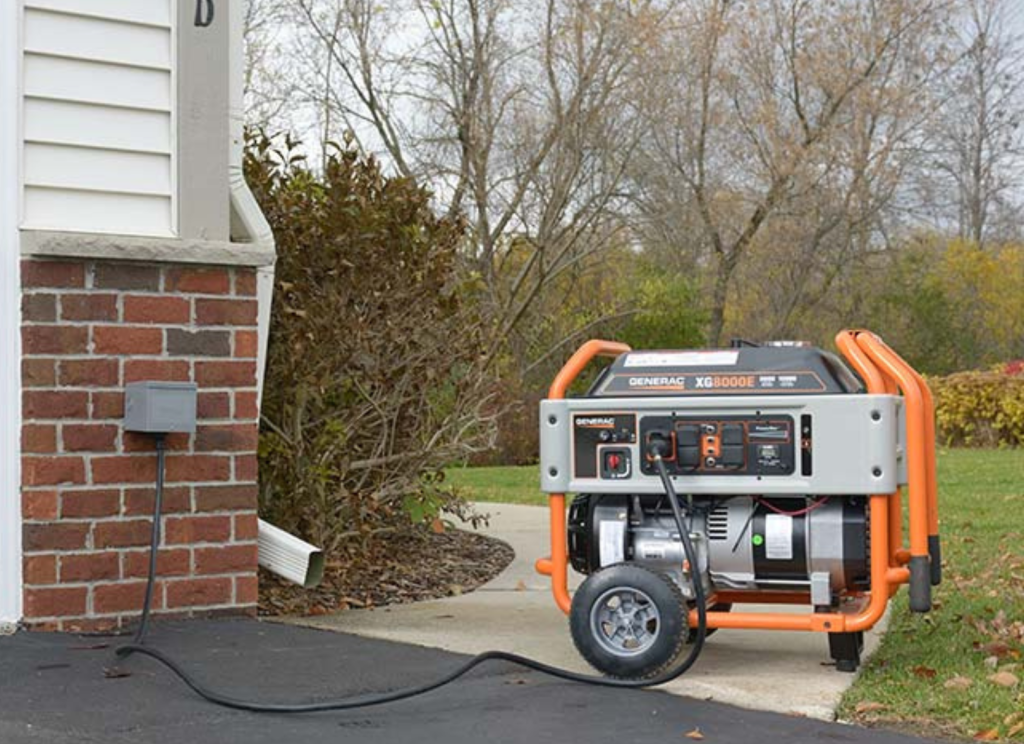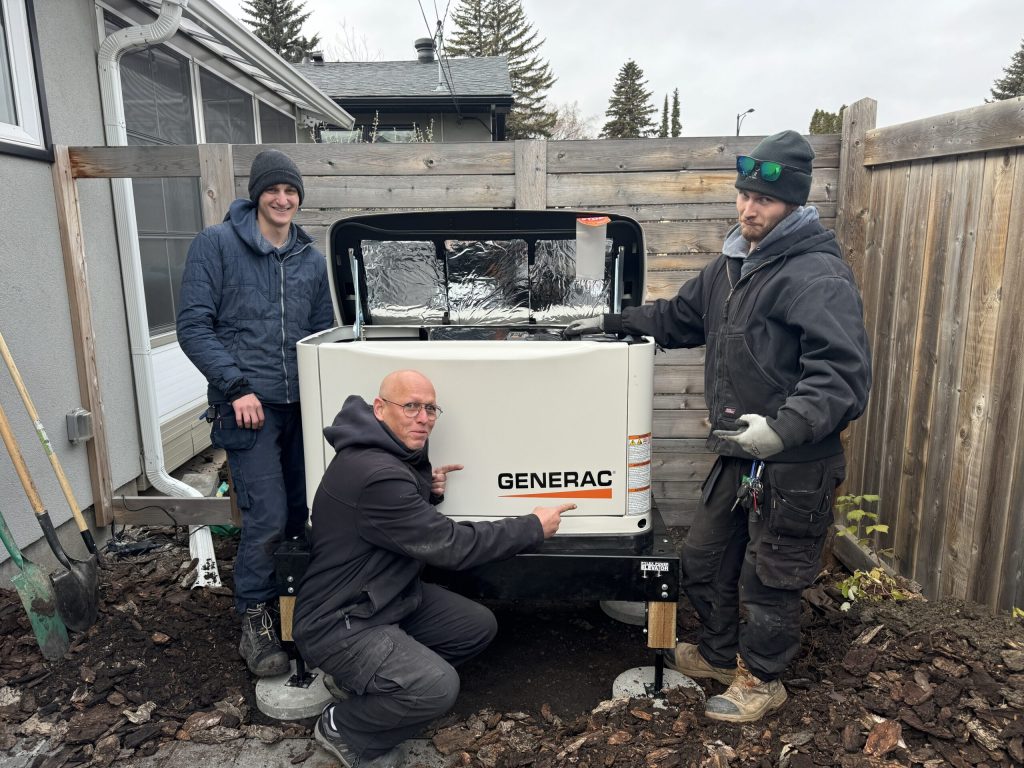Home Backup Generators
A Home Backup Generator is a fuel-powered backup power supply that provides electricity to your home during a utility outage.
Power outages are becoming more common with extreme weather and peak grid demand. A properly sized generator keeps you safe and comfortable until power is restored. We design, permit, install, and service systems across Sherwood Park and Strathcona County.
There are 2 types of generator systems you can use to power your home during a power outage:
Option A — Portable + Manual Transfer Switch (budget / essentials)
- Runs essentials only; manual start & switchover
- Fuel: typically gasoline; some models can use natural gas or propane
- Requires a manual transfer switch installed by a licensed contractor (permit required)
- Best for occasional outages

Portable Generator
You can connect your home to a portable generator for limited power during occasional outages.
This type of generator is often used for RVs and is smaller and cheaper than larger, permanent ones.
While they don’t provide as much power, some can connect to your home’s electrical system from outside. However, you need to set them up manually, and they can be noisy. Most portable generators run on gasoline, but some can also use natural gas or propane. They can only power essential items like your furnace, fridge, freezer, and sump pump. To connect a portable generator safely, you will need a manual transfer switch, which requires a permit and must be installed by a licensed electrical contractor.
Option B — Automatic Standby (Generac Guardian) (whole-home/most circuits)
- Turns on automatically and switches back when utility returns (via ATS)
- Fuel: natural gas or liquid propane
- Quiet, outdoor-rated, permanent installation with automatic transfer switch
- Best for frequent outages or whole-home protection

Permanently installed home backup generators
Permanent home backup generators automatically provide power during outages. Installed outdoors, they require professional installation and an automatic transfer switch (ATS) connected to your main electrical panel.
When a power failure occurs, the ATS signals the generator to start and transfers power to your home. Once utility power is restored, the ATS switches back, and the generator shuts down.
It’s essential to have a licensed electrical contractor with experience in backup generator installations handle the wiring. This ensures safety and reliability, keeping your home powered when you need it most.
Not sure what size you need?
Tell us what must run during an outage (furnace, well pump, fridge, Wi-Fi, AC/EV). We’ll recommend the right kW and ATS.
